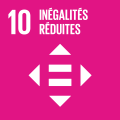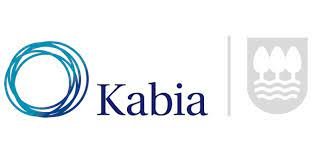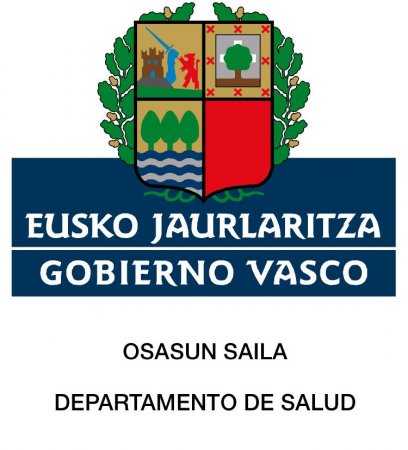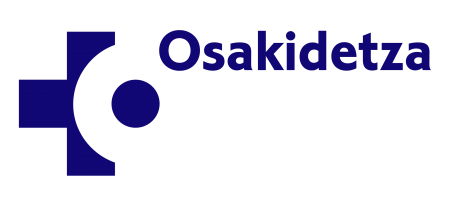
Health and Language VI: Language Needs in Social and Health Care
Difference in common: language needs in social and health care.
Description
There are about 7.000 languages in the world. It could be stated that language and culture diversity are inherently universal, and language diversity could be considered as inherently human. Therefore, language should not be considered as an issue without any relation to medicine or reserved solely to linguists. On the contrary, being the aim of health and social care the wellbeing of individuals and communities, to understand them (both the person and the society) language is required. In a multilingual environment, language is a global challenge, affecting both health professionals and patients, including migrants and linguistic minority groups.
The issue of language in health and social care can vary within different countries, owing to the cultural, political and economical characteristics of each country as well as the nature of each linguistic group involved. All this considered, the origins, values, characteristics, organization, and structure of every health and social care organization should be studied and considered, if an effective language planning is to be achieved. As it has been pointed out, the evidence on hand comes from different countries and perspectives, and consequently it is fragmented and dispersed. What it is valid in one country may not be valid in another. This global challenge has been discussed in the last years in our Summer Course `Health and Language´, with the participation of experts from the Basque Country and aboard.
Language rights of individuals and communities are not recognized in many countries, and therefore health and social care are only offered in the majority language. In other settings legal frameworks can be found in which language rights are recognized, but no more than at a theoretical or rethorical level. Thus, there are language policies, language plannings, specific plans focused on health and social care…but are they really effective? Is the evidence on hand being applied in the daily practice? Are patients´ language needs properly met?
In this Summer Course different proposals from different countries will be adressed, as well as their implementation and evaluation, being the language needs of the patients the starting point and the central focus of the conference.
Language needs could be defined as the language that each patient needs to receive high quality health and social services, in the whole process of care (at home or at hospital, from primary to specialized care); or in other words, the language she or he needs to deal with professionals and organizations. The lack of response to these needs may lead to harmful effects and thus humper a quality service. For this reason, it is the responsibility of the organizations and professionals to identify and to offer an appropriate response to these language needs.
Difference in common, unifying differences, language needs are a global but not a necesarilly homogeneus issue. Just as individual language needs may change, language communities may differ in different settings at an international level. Cultural safety could be mentioned as an example of this diversity. Aligned with cultural safety, it would be patient´s right to state his or her language needs, and to confirm if they have been really met. In other words, a shift in power relationships is required, from organizations and professionals to patients. Power relationships are, then, essential.
The concept of language needs has the aim to improve the quality of social and health services in a multilingual setting, in order to achieve optimal and equitable health outcomes. It is aligned with the model of patient centred care. It could be said that there is not a real patient centred care if the patient´s language needs are not identified.
However, in most cases the governments and societies establish the laws and rules over individual rights, i.e., language needs, although being a patient´s right , are conditioned by social, economical, political and cultural power relationships. To the extent that oftenly not even the patient herself or himself is conscious of his or her language needs. In the same way, language is considered by many professionals and organizations as a minor and merely individual issue.
The the 6th edition of the `Language and Health´ summer course will be focused on this complex and diverse issue, with the goal of finding out and spreading what is being carried out to meet patients´ language needs all across the world. The course is adressed to nursery and medical students and health professionals, researchers, sociologists, sociolinguists, linguists and every one interested in language rights and justice.
Key words: language needs, language rights, language planning, language policies, language plannings, implementation, evaluation, cultural safety, power relationships, cultural safety, patient centred care.
Objectives
Analyze for health personnel and institutions whether language is an inconsequential variable that belongs to the individual private sphere.
Analysis of care and response to language needs in the Basque Country and internationally.
Activity directed to
- All public
- University student
- Students not from university
- Teachers
- Professionals
Program
06-07-2023
Erregistroa
Presentation by the Director of the activity
- Aitor Montes Lasarte | Osakidetza - Famili medikua
- Jon Zarate Sesma | UPV/EHU - Irakasle-ikertzailea
“Galesaren hizkuntza politika arreta soziosanitarioaren esparruan. Diskurtsoa eta errealitatea“
- Cynog Prys | Bangor University - Irakasle-ikertzailea
“Hizkuntza-eskubideen eta beharren arteko harremana. Beharrak dira helburua eta eskubideak metodoa“
- Gerald Joseph Roche | La Trobe University - Senior Research Fellow (Participation by zoom)
Break
Round table: “Hizkuntza-eskubideak ala hizkuntza-beharrak?“
- Jon Zarate Sesma | UPV/EHU - Irakasle-ikertzailea (Moderator)
- Arantza Lekuona | Kabia - Gerentea
- Joseba Fernández de Retana Corres | Osakidetza - Pediatra
“Erizaintza eta medikuntza ikasleen eta irakasleen ibilbidea gutxiengo egoeran. Galesko esperientzia “
- Awen Iorweth | Cardiff University - Irakasle-ikertzailea
07-07-2023
“Hizkuntza justizia eta gaitasunen eredua“
- Nicole Marinaro | Ulster University - Irakasle-ikertzailea
“Segurtasun Kulturalaren Esparrua “
- Elissa Elvidge | University of Newcastle - Post-Doctoral Research Fellow (Participation by zoom)
Break
“Ezgaitasun intelektuala duten Down sindromedun pazienteei kalitatezko osasun arreta euskalduna eskainiz “
- Miren Altuna Azkargorta | CITA-Alzheimer Fundazioa - Mediku neurologoa
“Hizkuntza-justizia, hizkuntza-aniztasuna eta gizarteratzea “
- Cecilia Gialdini | Ulster University - Posdoctoral research
Round table: “Aniztasunean bat. Elkarrekin lan egiteko aukera“
- Jon Zarate Sesma | UPV/EHU - Irakasle-ikertzailea (Moderator)
- Ainhoa Oñatibia Astibia | Gipuzkoako Farmazialarien Elkartea. FEUSE - Farmazialaria
- Miren Altuna Azkargorta | CITA-Alzheimer Fundazioa - Mediku neurologoa
Synthesis
Directors
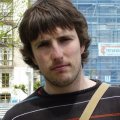
Jon Zarate Sesma
UPV/EHU
Jon Zarate Sesma (Lekeitio, 1979) UPV/EHUko Farmazia eta Elikagaien Zientziak Saileko kide da. Farmazia Fakultateko irakaslea da eta Euskararen eta Etengabeko Prestakuntzaren arloko errektoreordea. Farmazian doktorea da (UPV/EHU, 2007) eta 2016ko osasun-arloko Koldo Mitxelena euskarazko tesi onenaren zuzendaria izan da. Azken urteetan gene terapiarako garraiatzaile ez-biralen garapenean ikertzen aritu da. Goi mailako nazioarteko ikerketa aldizkarietan 20 artikulutik gora dauzka argitaratuta eta euskarazko produkzioa zientifikoa ere nazioartekoaren parekoa dauka Ekaia edo Elhuyar bezalako aldizkarietan.

Aitor Montes Lasarte
Osakidetza
Basaurin jaioa (1972), Euskal Herrian. Medikuntzan lizentziaduna UPV/EHUn, 1999an. Familia medikuntzako espezialitatea burutu zuen 2004an, Galdakao-Usansoloko ospitalean (Euskal Herria). Gaur egun familia medikua da Aramaion, Debagoiena Erakunde Sanitario Integratuan (ESI), Osakidetza-Euskal osasun zerbitzuan. OEEko (Osasungoa Euskalduntzeko Erakundea) kidea. Euskal prentsan iritzi artikuluak idazten ditu noizean behin. Hizkuntza eta osasungintzarekin zerikusia duten hamar bat argitaratu ditu aldizkari zientifikoetan, batik bat Osagaiz, BAT soziolinguistika aldizkarian eta International Journal of Integrated Care aldizkarian. Eskalatzailea, zenbait bide berri zabaldu eta argitaratu ditu prentsa espezializatuan.
Speakers

Miren Altuna Azkargorta
Fundación CITA-Alzheimer fundazioa

Elissa Elvidge

Joseba Fernández de Retana Corres
Osakidetza

Cecilia Gialdini

Awen Iorweth

Arantza Lekuona
Nire ibilbide profesionalean euskararen erabilera eta kudeaketaren inguruko interesa izan dut, eta horren ondorioz, ahal izan dudan neurrian, Euskara Batzordeetan parte hartu dut eta hainbat ekintzen sustapenetan. KABIAren kasuan, erakundea 2015ean abian jarri zenetik bertako gerentea izan naiz, eta hasieratik bultzatu dut euskara kudeaketan txertatua egon dadin. Aurretik izan dudan esperientzia guztiak lagundu dit helburu hori bideratzen.

Nicole Marinaro

Ainhoa Oñatibia Astibia

Cynog Prys

Gerald Joseph Roche
Registration fees
| Face-to-face | Until 31-05-2023 | Until 06-07-2023 |
|---|---|---|
| 25,00 EUR | 59,00 EUR | |
| - | 84,00 EUR | |
| - | 71,00 EUR | |
| - | 59,00 EUR | |
| - | 71,00 EUR | |
| - | 21,00 EUR | |
| - | 0 EUR | |
| - | 0 EUR |
| Live online | Until 31-05-2023 | Until 06-07-2023 |
|---|---|---|
| 25,00 EUR | 59,00 EUR | |
| - | 84,00 EUR | |
| - | 71,00 EUR | |
| - | 59,00 EUR | |
| - | 71,00 EUR | |
| - | 21,00 EUR | |
| - | 0 EUR | |
| - | 0 EUR |
Venue
Bizkaia Aretoa-UPV/EHU
Avenida Abandoibarra, 3. 48009- Bilbao
Bizkaia
Bizkaia Aretoa-UPV/EHU
Avenida Abandoibarra, 3. 48009- Bilbao
Bizkaia
Sustainable development goals
Agenda 2030 is the new international development agenda approved in September 2015 by the United Nations. This agenda aims to be an instrument to favour sustainable human development all over the planet, and its main pillars are the eradication of poverty, a reduction in equality and vulnerability and fostering sustainability. It is a unique opportunity to transform the world up to 2030 and guarantee human rights for all.

3 - Good health and well-being
Guarantee a healthy life and foster the well-being of all people of all ages. Key issues: universal healthcare coverage, sexual and reproductive health, reduction in the number of road accident casualties, pollution and chemical products, reduction in maternal and neonatal mortality, the end of epidemics such as AIDS, combating hepatitis and other water-borne diseases, drug and alcohol prevention, control of tobacco.
More information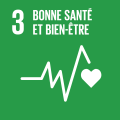
10 - Reduced inequalities
Reduce inequality in countries and between them. Key issues: promotion of the social, economic and political inclusion of all people, equal opportunities, fiscal, wage and social protection policies to favour equality, migration and the policies that affect it, official assistance for the development, regulation and supervision of world institutions and markets.
More information